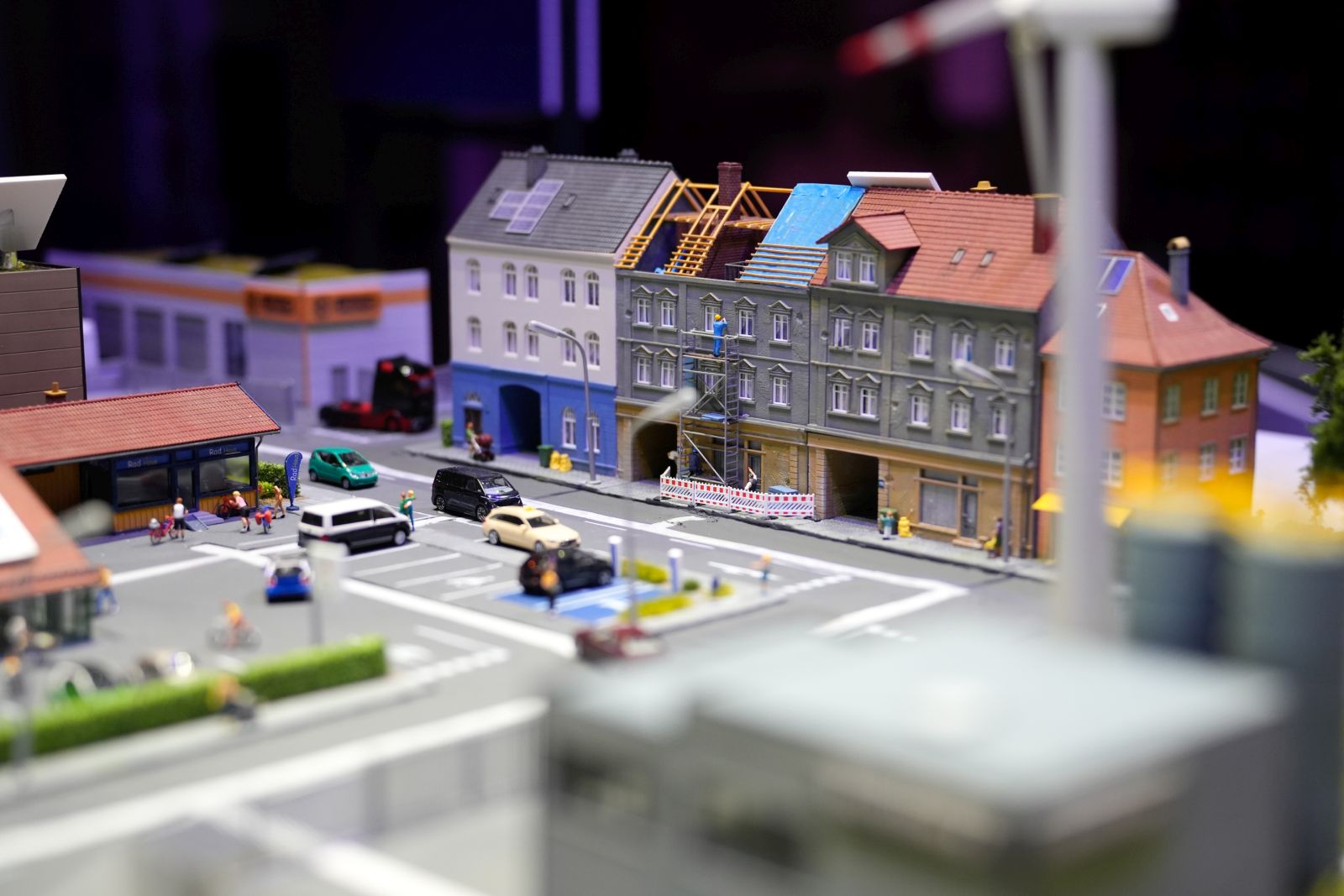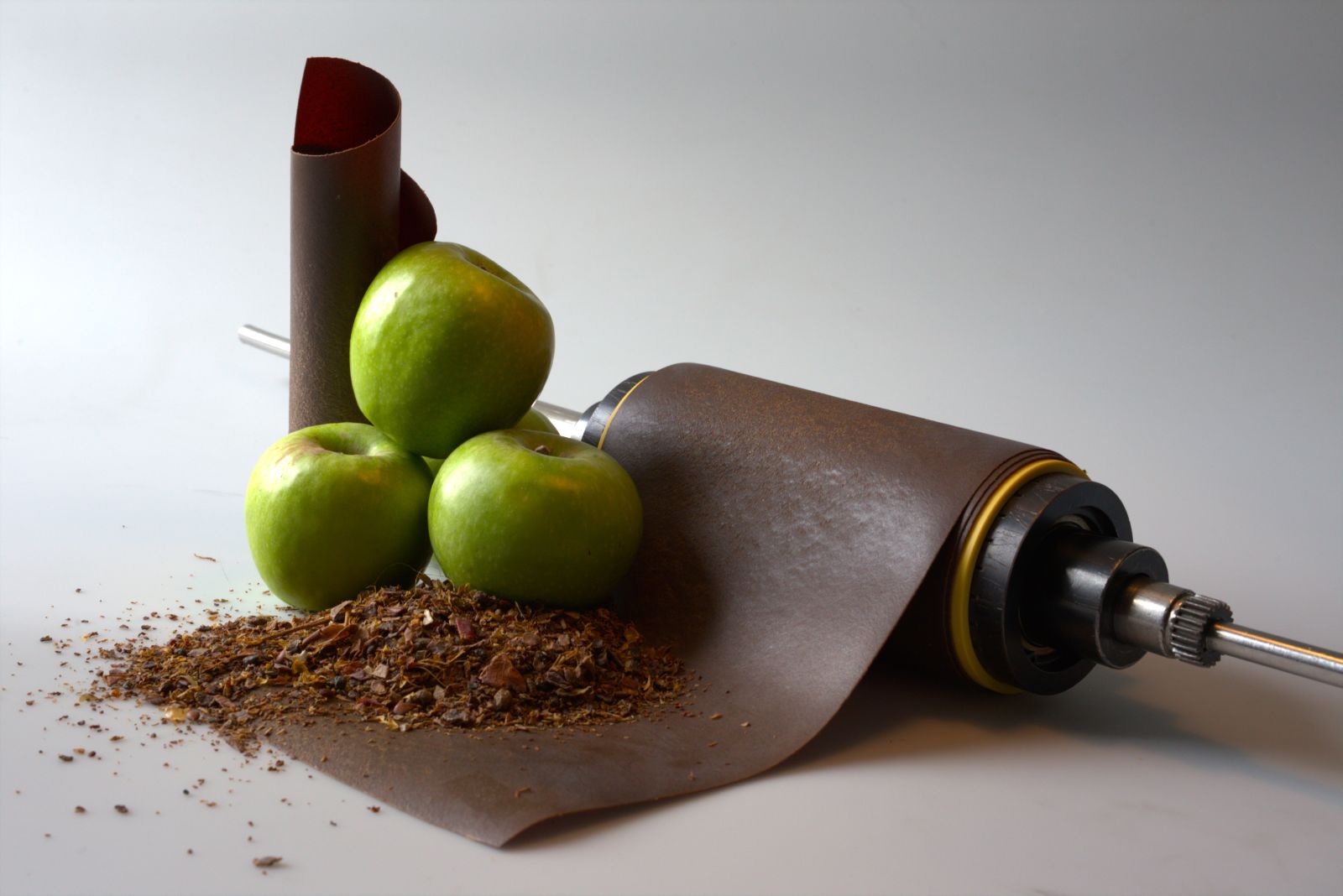Fraunhofer at the K 2025 trade show
Sustainable Research Highlights for the Plastics Industry
Eleven Fraunhofer institutes will be showcasing their innovations at K, the world’s leading trade fair for plastics and rubber, to be held in Düsseldorf from October 8 through 15. These advances include everything from circular design and monomaterials to bio-based films and polyamides made from various production residues. Different material flows will be illustrated in tangible ways in an interactive miniature wonderland of the circular economy.


Growing concerns about sustainability, ever tighter regulatory requirements and technological innovation are all reshaping the plastics industry. There is particular demand for solutions that will fit a circular economy. The interactive miniature landscape assembled by the Fraunhofer Cluster of Excellence Circular Plastics Economy CCPE presents scientific advances in a fun and engaging format, visualizing various material flows in a fully circular economy at a scale of 1:87. For example, visitors can trace the journey taken by particle foams from their use as insulating materials to when they are broken down chemically into their individual components and then to their redesign and sustainable reuse. This model considers both sustainable logistics solutions and circular design. A recycling cascade shows which recycling paths are suitable for different waste streams. Companies can also use the Circular Readiness Level® (CRL®) online tool to test how well their products fit into the circular economy and see which of their production processes can be optimized.
Circular Thursday, a day-long themed event presented by Fraunhofer CCPE at Booth C40 in Hall 6 on October 9 as part of a special show titled Plastics Shape the Future in cooperation with Plastics Europe Germany, will also revolve around how to close material cycles. Manfred Renner, head of Fraunhofer CCPE and the Fraunhofer Institute for Environmental, Safety and Energy Technology UMSICHT, explains: “We will be presenting circular solutions for the plastics industry at K 2025. I firmly believe Germany can be a central node in the European and global circular economy. The technological foundations are there, but now they need to move into industrial execution. At Circular Thursday, we will be showing how to get there and bringing the research sector and industry together to facilitate discussion.”
Circular design — sustainable from the start
One area of focus for both the model and the real-world circular economy is circular design, which is increasingly a key factor in product development. The goal is not just to close material cycles but also to slow them down, and that involves designing products in such a way that they require less material and can be used more intensively, along with ensuring that individual product components are modular and easier to replace. Following this circular design principle, Fraunhofer CCPE worked with partners to develop an innovative and modular car seat for babies and toddlers. The fully redesigned prototype uses reusable components, is repairable and is made from bio-based materials on the basis of a biopolymer matrix and natural fiber reinforcement. In this way, it addresses another sustainability trend in the plastics industry: monomaterials.
Monomaterials: less is more
In addition to the prototype car seat made from recyclable monomaterials, Fraunhofer researchers will be presenting three other lightweight monomaterial demonstrators at the K event. An innovative bike helmet developed by the Fraunhofer Institute for Chemical Technology ICT consists entirely of polylactide (PLA), a bio-based plastic suitable for the circular economy. Because it is made of a single material, the helmet can be recycled, which was not possible with the previous composite material. Compared to conventional helmets, most of which are made in Asia from petroleum-based materials, the PLA helmet cuts lifetime carbon emissions by two-thirds, all without sacrificing protection or functionality. It can be produced using the same mass manufacturing methods as conventional helmets, allowing for a competitive market launch. The materials and production methods developed for the helmet can also translate to other products, such as surfboards, backpacks, protective sports gear and foam rollers used for training and massage. The researchers from Fraunhofer ICT will also be presenting other innovative monomaterials in the form of a modular transportation case for urban air mobility and a car seat back with sandwich structures along with a three-layer recycled polyethylene terephthalate (PET) composite.
Bioplastics — versatile by nature
Bio-based materials will be another area of focus at the Fraunhofer booth. Several innovations will be presented all at once. As part of the “A Matter of Fruit” cooperation project, Verena Brom, founder of the startup of the same name, has worked with the Fraunhofer UMSICHT to further develop biodegradable films based on production residues from juice manufacturing. The cooperation enabled the transfer to a continuously manufactured film, for example as a leather substitute.
The SUBI2MA (Sustainable Bio-Based and Biohybrid Materials) flagship project, in which six Fraunhofer Institutes are involved, focuses on using bio-based material components due to their exclusive molecular functionalities. Going forward, integrating these kinds of biological components will make it possible to develop and produce completely new materials.
The Fraunhofer Institute for Applied Polymer Research IAP is to showcase a polyethylene alternative in the 20 new types of the bioplastic polybutylene succinate (PBS) that researchers there have developed. These recyclable materials can be processed reliably using standard and commonly available methods, from injection and blow molding to spinning. They are heat resistant to above 200 degrees Celsius and display outstanding mechanical properties. Existing practical applications include water bottles for use in sports and fitness.
The Fraunhofer-Gesellschaft will be showcasing these and other innovations at its joint booth, Booth 70SC05, in Hall 7.0. A media tour will be held at the booth from 11 a.m. to noon on October 8.
Last modified: